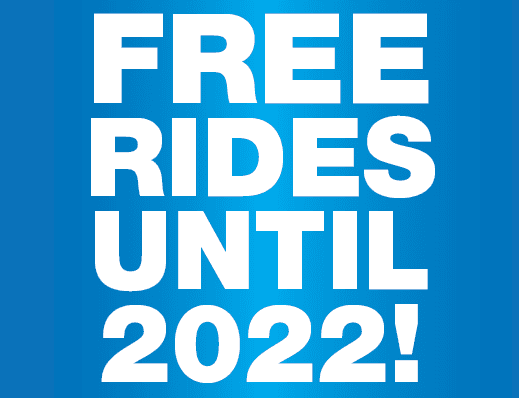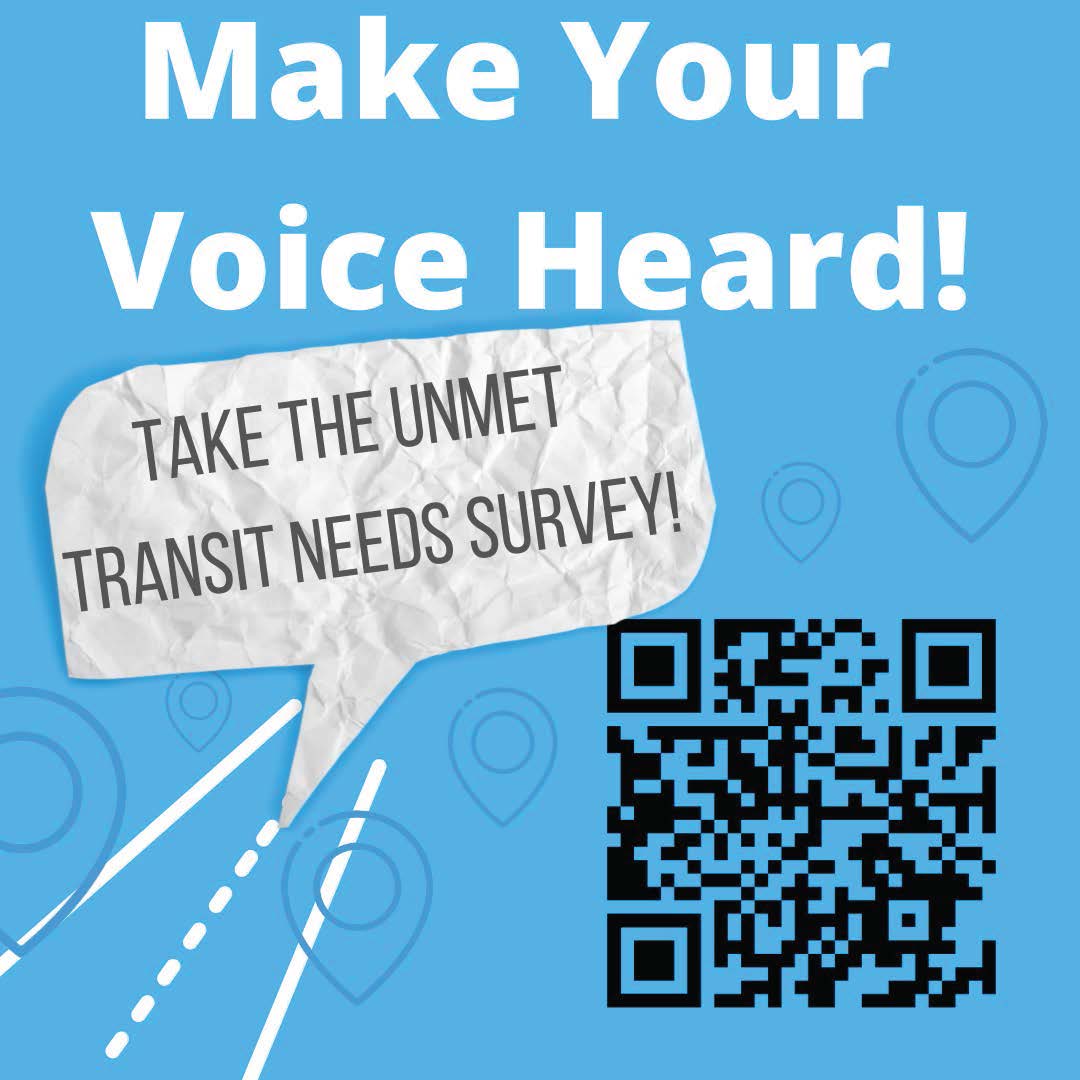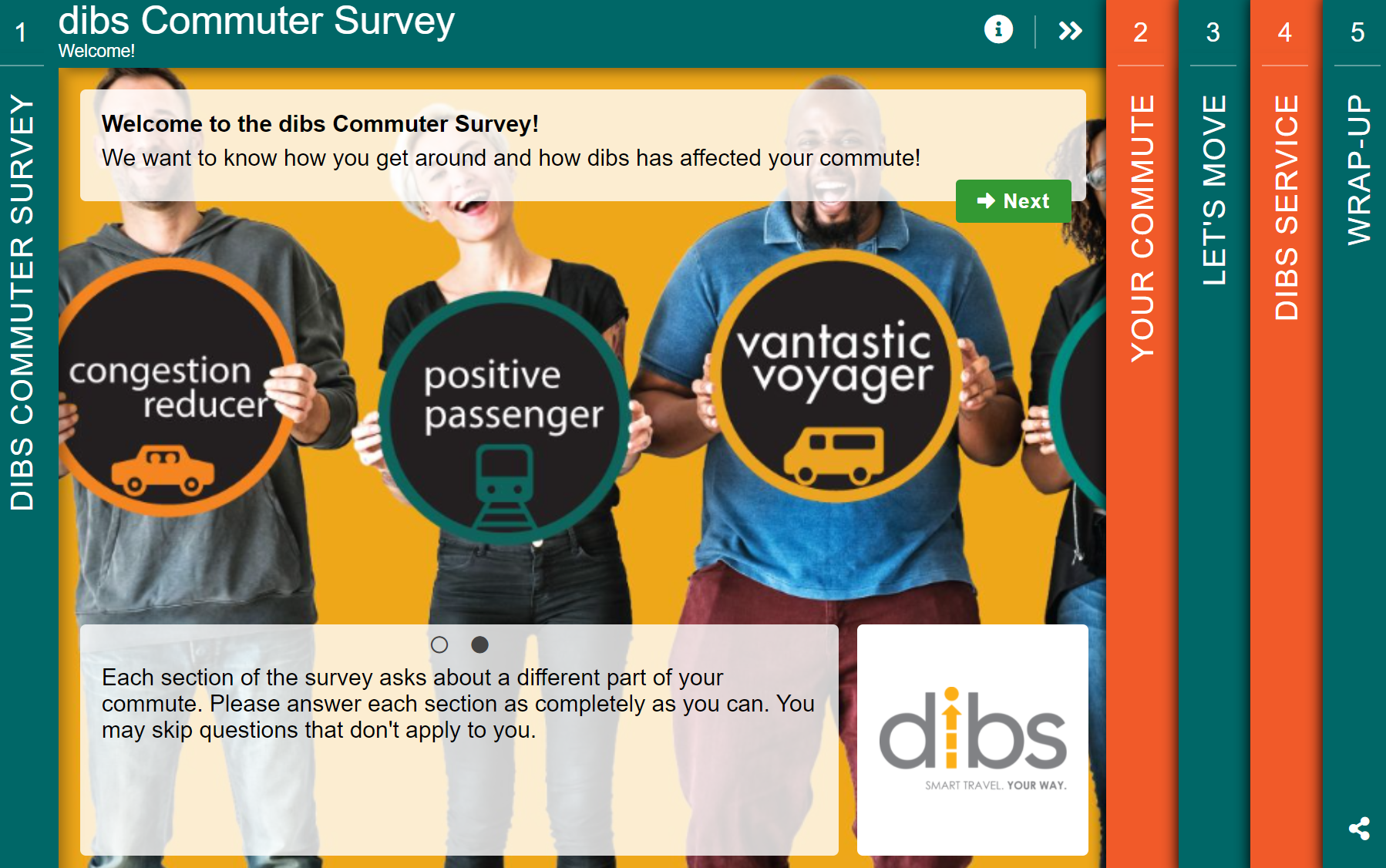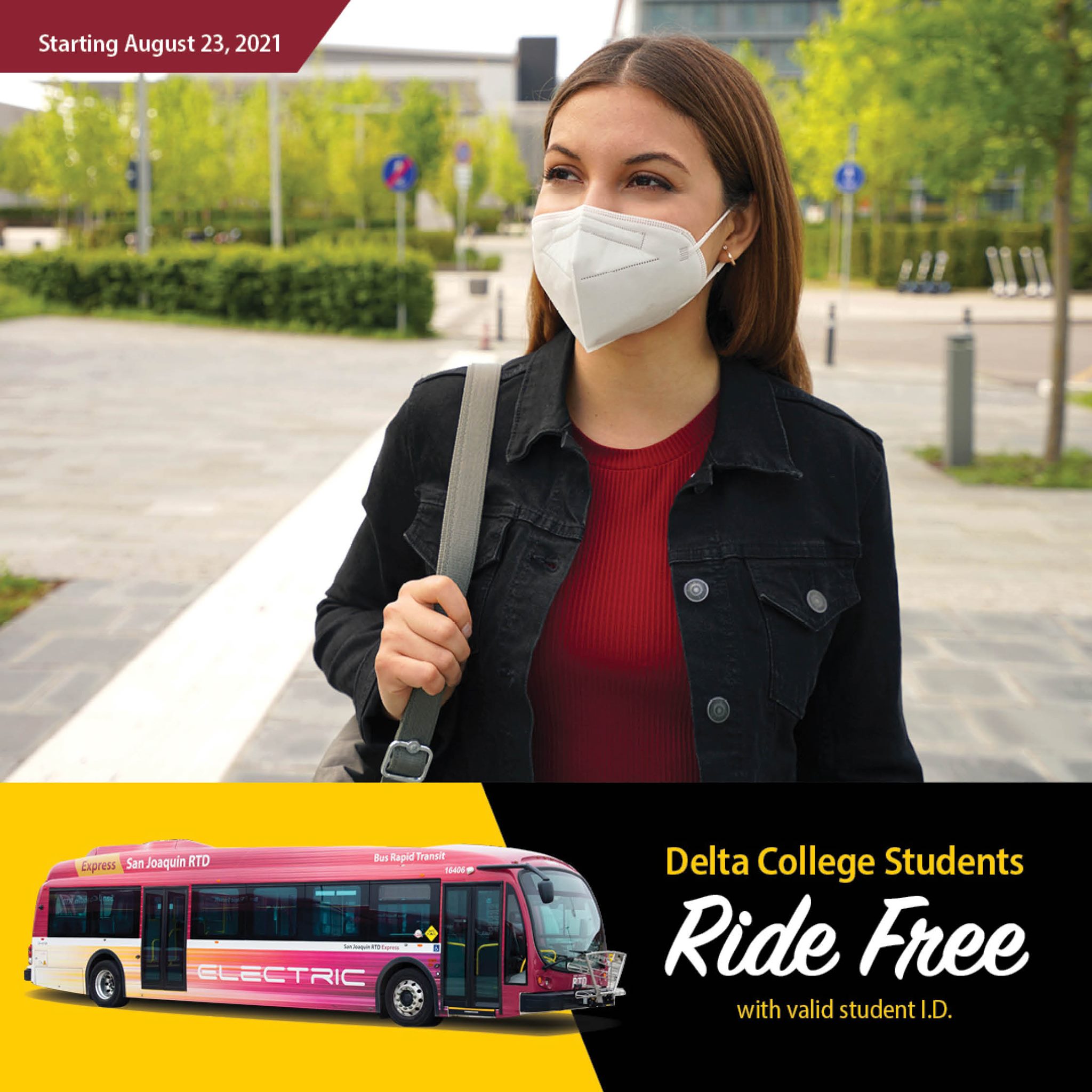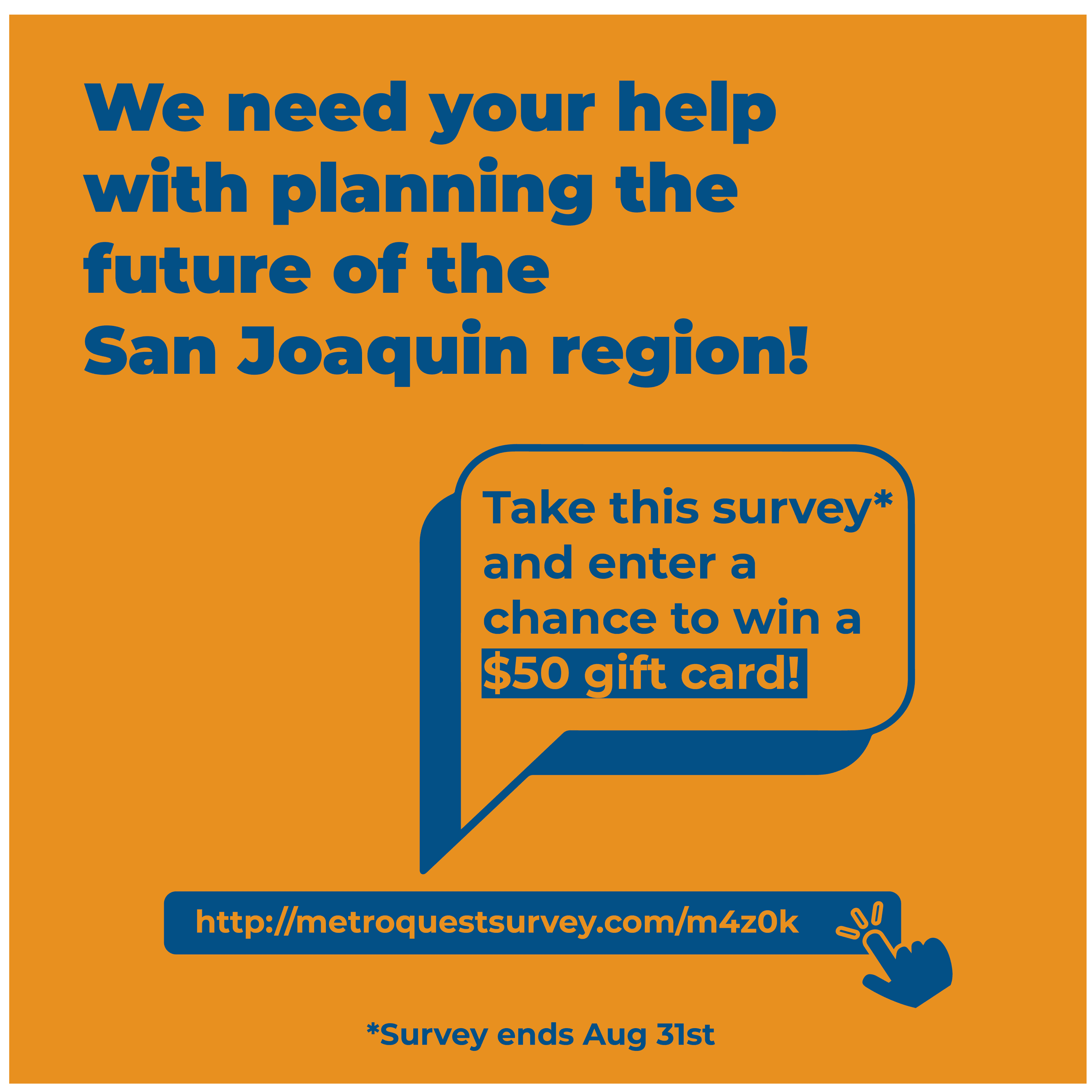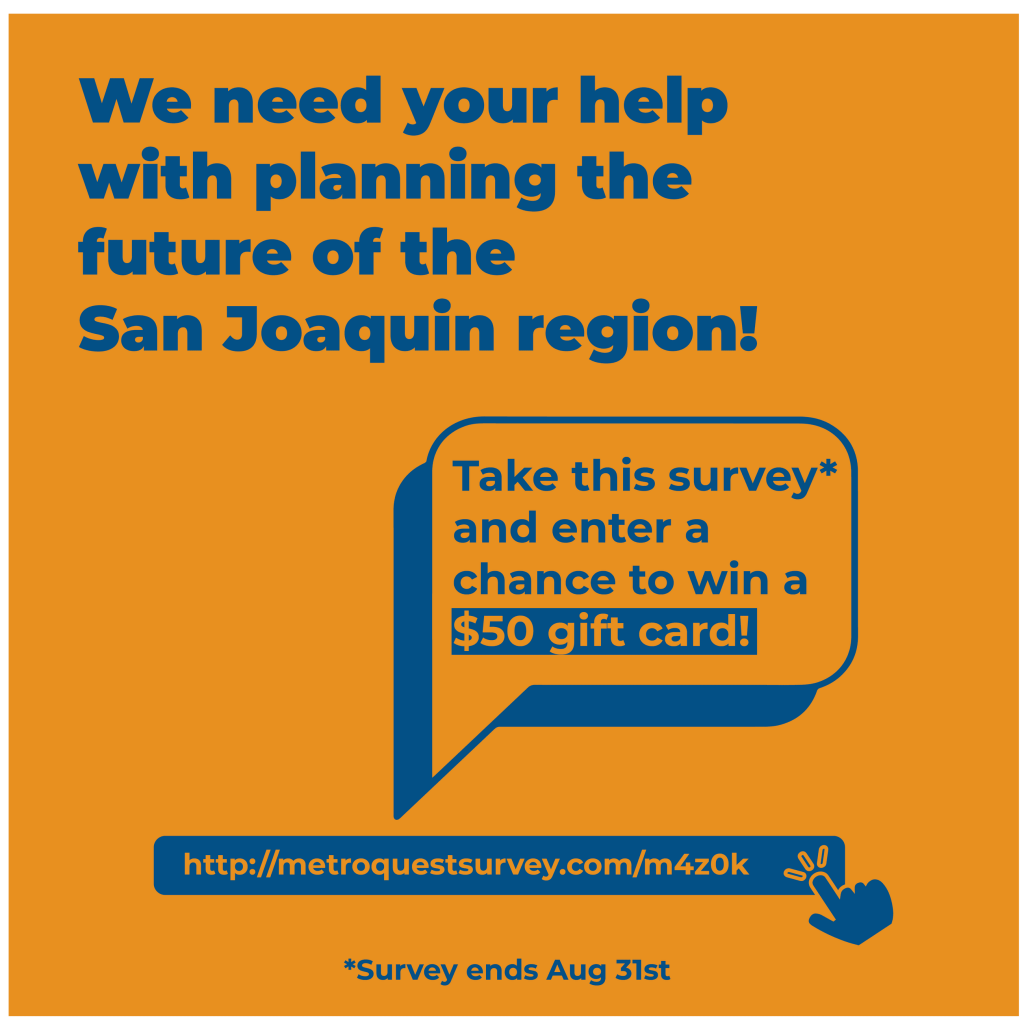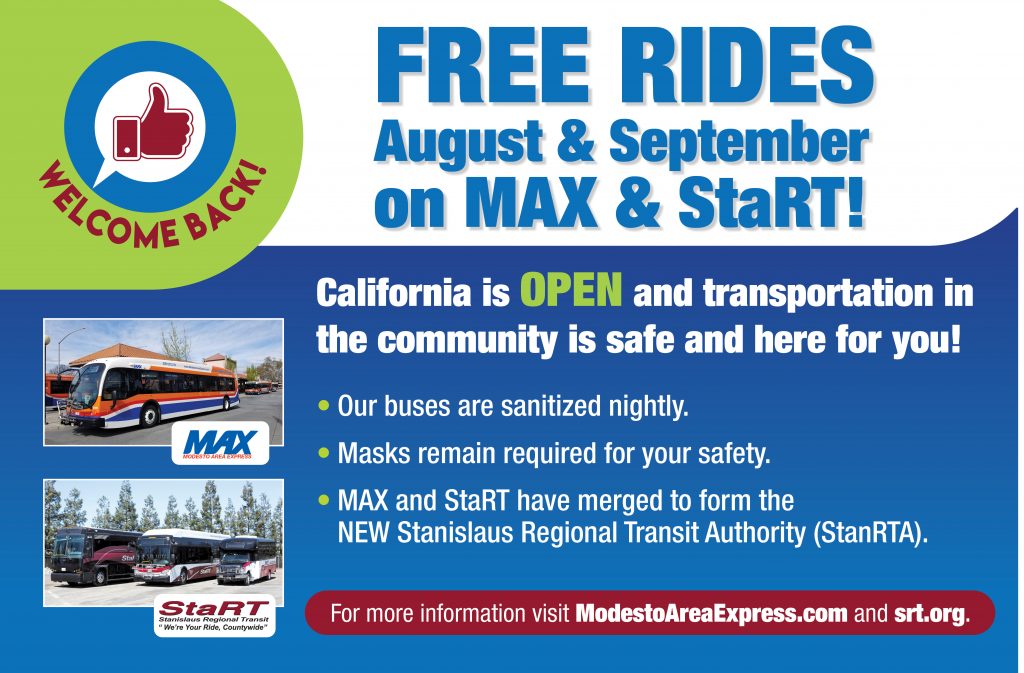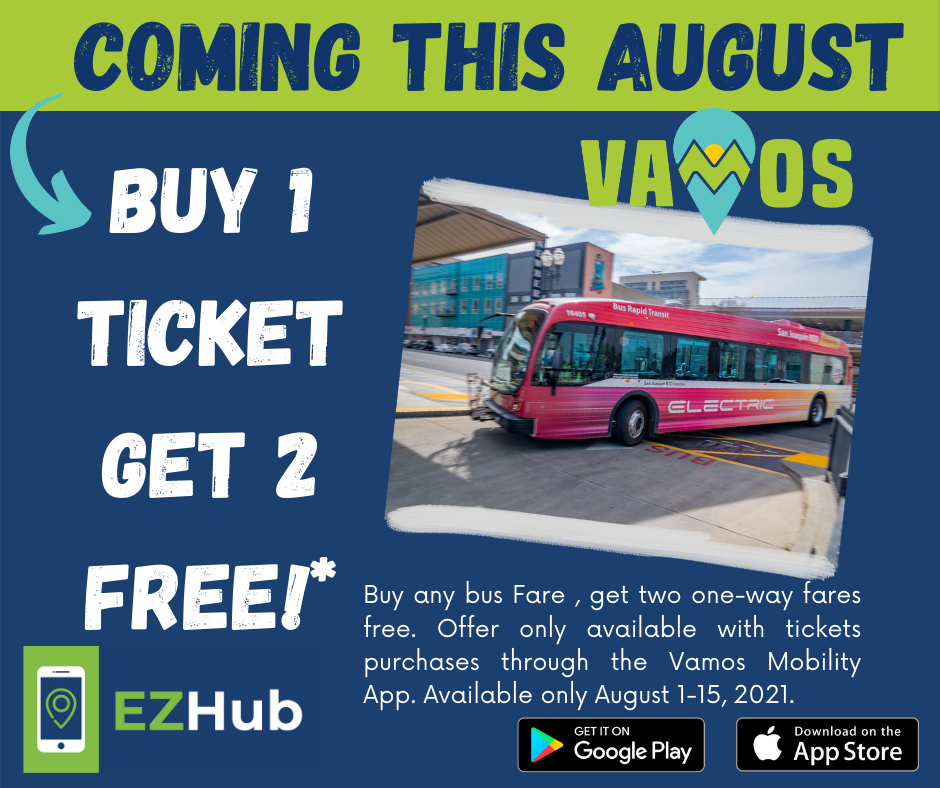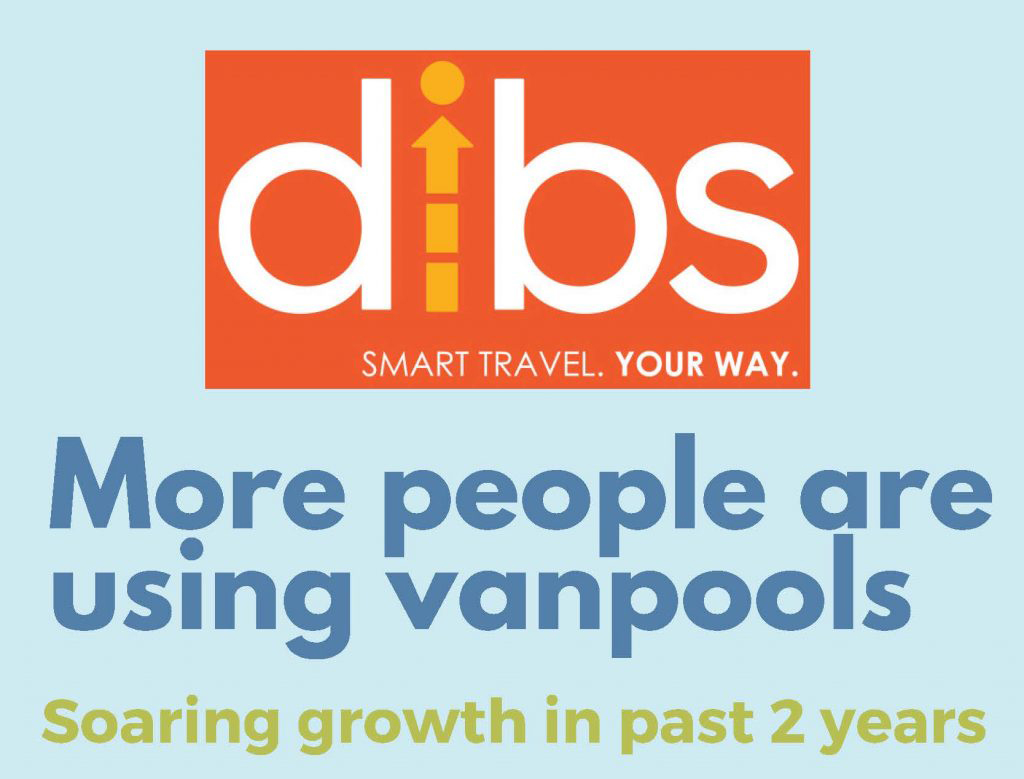The San Joaquin Council of Governments’ three-county vanpool program grew sharply in the past two years as workers sought safe, dependable and affordable transportation as an alternative to driving alone to and from work.
In the 2018-19 fiscal year, 8,995 commuters traveled in and out of San Joaquin, Stanislaus and Merced counties using 171 vanpools as part of their normal work routines. By the end of the 2020-21 fiscal year, those numbers had soared to 11,267 commuters and 439 vanpools. That is an increase of more than 25.3 percent in commuters and more than 157 percent in the number of vanpools.
That also means that there were 1,866 vehicles off the road because commuters used those vanpools, saving the region from about 31 tons of the greenhouse gas carbon dioxide that contributes to global warming.
“This is a significant and very positive gain in a short time,” said Yvette Davis, SJCOG’s senior program specialist in charge of the agency’s dibs program promoting smart travel alternatives. “The results in San Joaquin, Stanislaus and Merced counties show that we’re shifting commuter behavior from that of driving alone to using smart travel alternatives, such as vanpools. That reduces greenhouse gases, improves air quality and reduces traffic congestion.”
Air quality in the San Joaquin Valley region exceeds national air quality standards and dibs works in San Joaquin, Stanislaus and Merced counties to reduce air pollution and traffic congestion. The program promotes smart travel such as vanpooling, carpooling, transit, rail, biking and walking to improve air quality by reducing the number of vehicles on the road. The program does that through employer and community outreach, and offering tools, incentives, and trip planning services to commuters. The vanpool program is sponsored by SJCOG, Stanislaus Council of Governments and Merced County Association of Governments.
And commuters are singing the program’s praises.
“We travel about 80 miles a day round trip between Lodi and Tracy,” said Rudy Carreon, a vanpool user who works at Defense Distribution San Joaquin in Tracy. “This opportunity has allowed for family savings in fuel costs and knowing we are contributing to preserving this world of ours. This program builds a closer work-related culture among people who would not normally cross paths.”
Others agree that vanpools are convenient and help to build workplace comradery.
“The vanpool is great,” said Thomas A. Gaberel. “I have team members that are on the same shift (at Tesla) and we can all meet up at one place. We can relax and enjoy our ride to and from work. We get to leave at the end of shift and just have a good time. We drive 76 miles one way so it’s nice to have good team members who make the drive fun. …It’s nice to have other people who have the same mindset in the carpool.”
Some have enjoyed those benefits for many years.
“I’ve been vanpooling for 12 years and it’s the best way to get to work at Stanford University in the Bay Area,” said Art Lopez Chacon. “We rotate drivers, we share the cost, we’ve enjoyed our adventures for 12 years. We keep the commute less stressful than it would be if I were driving alone every day. It also helps keep traffic congestion down because we’re commuting with each other.”
Beyond saving commuters money on fuel, maintenance, and wear and tear on their personal vehicles, vanpooling:
- Saves the environment by reducing greenhouse gas emissions and improving air quality.
- Saves driving time by reducing traffic congestion.
- Reduces employee stress since passengers can read a book, listen to music or a podcast, or work during the ride.
- May provide an option to close transit gaps.
- Helps reduce parking demand and vanpools may receive preferred parking.
- Helps heighten employer reputation, especially for employers who provide vanpool incentives.
- May improve employee recruitment and retention.
- May reduce absenteeism and turnover since employees who commute together are generally on time.
- Supports corporate sustainability goals.
- Means being able to travel in High-Occupancy Vehicle (HOV or carpool) lanes.
A vanpool is generally a group of up to 15 people who commute to and from work together in a van. Vanpools work best for people who live at least 20 miles away from their workplace and have a consistent work schedule.
To attract riders, vanpool incentives are offered by SJCOG through a Congestion Mitigation Air Quality grant. The voucher can be combined with other agency and employer incentives.
Visit the dibs website to learn more about vanpooling in San Joaquin, Stanislaus and Merced counties and all the other programs offered.

